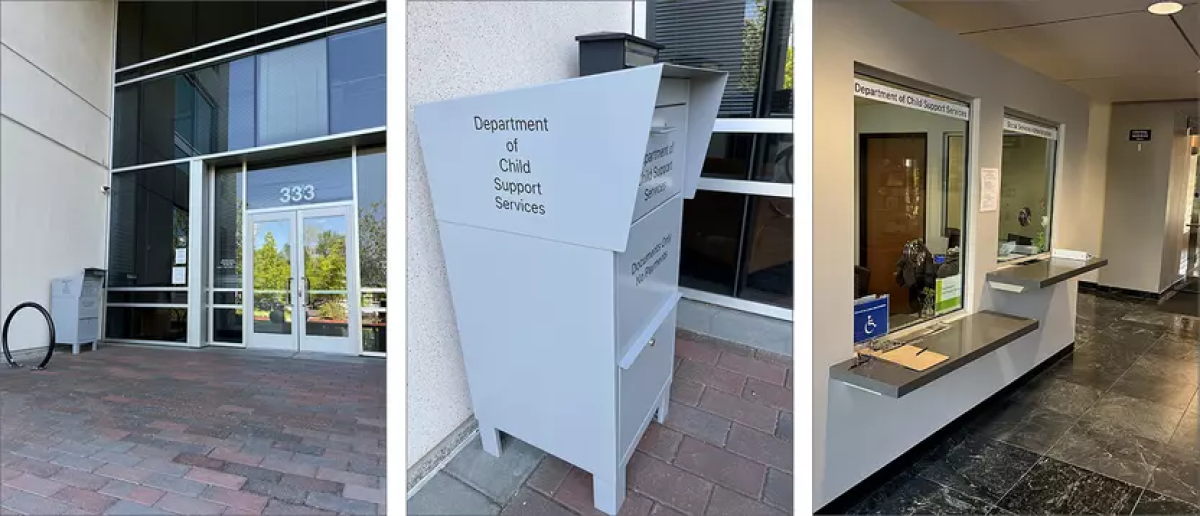Child Support
Avoid Vacation Drama with Your Ex
Planning a Summer Trip with the Kids? How to Co-Parent Without Custody Drama

Taking your kids on vacation this summer? Learn how to handle travel, communication, and custody rules without legal headaches. From consent letters to emergency plans, this co-parenting guide helps you plan a smooth trip—and avoid last-minute drama.
Planning a summer vacation with your kids sounds simple — but when you're co-parenting, it’s anything but. The fun stuff — matching theme park shirts, eating churros, and fantastic (or Fantasmic?) memories — comes later. When you’re co-parenting, travel comes with extra layers: legal, logistical, and emotional. A weekend getaway can quickly become a full-blown custody headache if you’re not prepared.
I’ve done the big trips (multiple flights, hotel, rental car, rental-car car seat — as convenient as that can be, I still had to wait for another customer to return one; for some reason they only stock a handful), and I’ve done the short ones that somehow still cost a thousand bucks. What I’ve learned: planning the trip is only half the work — planning around custody is the other half.
Is Travel in the Parenting Plan?
Start there. If you have a formal parenting plan or custody agreement, it may include vacation provisions — who gets what weeks, how far you’re allowed to travel, notice requirements, and whether international travel is even allowed. If your plan includes designated vacation time, congrats — that’s a good foundation. But don’t assume that solves everything.
Even with a plan, the details matter:
- Do both parents need to approve travel?
- Are you crossing state lines?
- Is a passport involved?
- How much notice are you required to give?
Communication Is Key — Even If It’s Awkward
You can have court-ordered time in writing, but if your co-parent isn't on board with the trip, you’re in for turbulence — and not the kind you can blame on Spirit Airlines. Before you book anything, talk. Call, text, email — whatever works in your situation.
Explain the plan: when, where, how long, what the kids will be missing (school, activities, time with the other parent). You don’t need permission if your order doesn’t require it, but common courtesy — and co-parenting peace — go a long way.
And let’s be real: if you’re about to drop $3,000 on a two-week trip to the Yucatán, you don’t want to find out the night before that your ex is filing an emergency court motion. Do your best to work together, even proposing a temporary agreement for that trip. You can always revisit the parenting plan to clarify these things later — especially if summer travel becomes a recurring issue.
Big Trips Mean Big Commitments
Travel with kids is expensive. Flights, hotels, food, entertainment, possibly passports — it adds up fast. You’re probably fronting the money, which means you need to feel confident you’ll actually get to go. That’s why clarity with your co-parent isn’t just emotional—it’s financial self-preservation.
Last year I took my son on a quick weekend trip to Southern California for a family visit. Flights, hotel, rental car — over a grand in 48 hours. Worth it? Yes. But only because I was sure we were on the same page beforehand. Whenever possible, I let my ex know a few months in advance. It keeps her in the loop and helps lock in that date as non-negotiable, even if something else pops up later. That’s especially helpful when planning summer travel, where calendars fill up fast.
Whether it’s a quick weekend or a full summer vacation, the costs (and risks) add up. And you want to be confident that everyone’s expectations are aligned before you spend a dime.
Do NOT Forget the Paperwork
If your trip involves air travel, especially international, you may need documentation:
- A notarized travel consent letter from the other parent
- A copy of your custody order
- A passport (and yes, both parents usually have to sign for a minor’s passport unless one has sole legal custody)
Some airlines or customs agents ask for this. And if you don’t have it? You’re not getting on the plane — and the same goes for some cruises. Generally, you probably won’t have an issue, but spending a few minutes preparing can ensure there are no huge hiccups in summer travel plans.
So don’t leave it to chance. Ask early, prepare for delays, and keep copies of everything — digital and paper.
Court Restrictions? Know Them.
Some custody orders have restrictions on where you can go — e.g., no travel out of state without consent, or no international travel without court approval. Ignoring these can land you in contempt of court, which is a fancy way of saying “you may get hit with legal consequences and/or lose future trust with a judge.”
When in doubt? Talk to your lawyer. Or at the very least, reread your custody order before clicking “Book Now.”
Emergencies and Contact
Even if your co-parent isn’t thrilled about the trip, they should have a way to reach the child in an emergency. Share your itinerary. Give them the hotel phone number or your travel contact info. It's not just about courtesy — it’s about safety.
Also, kids may want to stay in touch with the other parent. A video call mid-week can go a long way toward easing anxiety — travel anxiety is real and can affect your children and your co-parent. This is especially true during extended summer travel, when routines are looser and kids might feel more untethered.
Final Thought: Travel Can Be a Gift, Not a Fight
If you can navigate the logistics and keep the lines of communication open, travel can be an incredible gift for your child. New experiences, shared memories, and quality time with you — that’s the goal.
Just remember: before the trip comes the plan. And when in doubt, over-communicate. You’ll thank yourself at the gate.
Frequently Asked Questions (FAQs)
Do I need the other parent's permission to take a trip with my child?
It depends on your custody order. If you're traveling out of state or internationally, most plans require notice or written consent. Read your order carefully.
What if the other parent says no?
If your plan requires consent and they won’t give it, you may need to go to court for a travel order. Don’t book until you’ve resolved it, but before contacting your lawyer exhaust your other options. Begin building documentation on your request, but also see if you can assuage your co-parents reservations regarding the trip. Offer to make up missed time, and tell them times of the day your children would be available for a video call. Ask for a temporary agreement on this trip, and that you will work on including vacations into the parenting plan when you get back. You can even bring in a neutral third party as a final card before requesting a court hearing. The judge will appreciate that you did your best to work towards a solution when you appear before them.
What documents should I bring on a trip?
At minimum: a copy of your custody order, a travel consent letter (if needed), and the child’s passport if going abroad. Also bring emergency contact info.
Who pays for the trip?
Usually the parent taking the trip pays, unless there's an agreement to split costs. If money’s tight, talk early and document any agreements.
Can I get a passport without the other parent?
Only if you have sole legal custody or a court order permitting it. Otherwise, both parents must sign the application for a minor’s passport.
What if something happens while we’re gone?
Have a plan. Carry insurance info, emergency contacts, and make sure someone at home knows your full itinerary.
How much notice should I give the other parent?
Check your custody agreement. Common notice periods are 30 to 60 days before travel, especially for summer vacations. I like to notify as soon as I have dates in mind.
You might also like these articles.
Resources
- International travel documents for children
Organization: United States Government
URL: https://www.usa.gov/travel-documents-children - Children Traveling Solo
Organization: AAA
URL: https://exchange.aaa.com/travel-planning/children-traveling-solo/#:~:text=Cruising%20with%20Children&text=If%20a%20child%20is%20sailing,or%20a%20knowledgeable%20travel%20agent.
Legal Disclaimer:
This post is for informational purposes only and does not constitute legal advice. For personalized assistance, consult a licensed family law attorney or your local legal aid agency.




